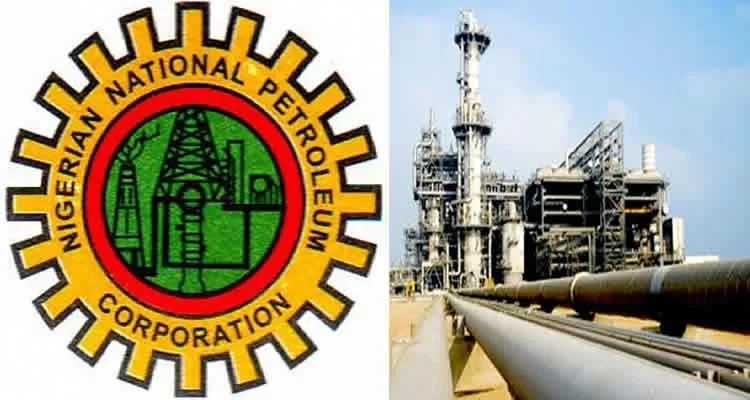Initial Comments on NNPCL’s 2022 Audited Accounts

By Waziri Adio
NNPC Limited, Nigeria’s national oil company, released its 2022 audited financial statement late Thursday. The audited statement covered a 16-month period, extending to four months in 2021, presumably to account for when the corporation transmuted to a limited liability company. Notably, NNPCL has now released five consecutive audited reports, covering 2018 to 2022.
The current GCEO of the company, Mr. Mele Kyari, blazed this path of openness when in 2020 he promised to open up the books of the organisation. He kept the promise. That year alone, NNPC released the 2018 and the 2019 audited financial statements in June and October respectively. The 2022 report should have been released last year going by the tradition established by NNPC in subsequent years. But better late than never. Besides, it is conceivable that the delay could have been occasioned by the dissolution of the organisation’s board.
Prior to 2020, the public was denied complete access to the financial state of NNPC. Kyari, who often states—and correctly too—that the national oil company belongs to all Nigerians, began the process of steering the organisation towards the path of light. He and his team deserve ample praises for starting and sustaining this desirable regime of transparency.
However, NNPCL could do much better with the level and the quality of its disclosures. Of late, the company seems to be relapsing to its opaque past. In 2016, two administrations before Kyari’s, the company started publishing monthly financial and operational reports. These reports provided near real-time and detailed picture of the organisation and the oil and gas sector. The last NNPC’s monthly financial and operational report published was for July 2021.
Also, the 111-page financial statement released on Thursday by NNPCL is not as detailed as it would appear or as it should be expected. For the 2021 financial year, the company released 21 separate audited financial reports. The current consolidated report lumps all parts of the organisation together. Without audited reports of all the subsidiaries, it will be difficult to know how the different components of the company are faring. And without an operational report alongside the financial statement, it is hard to really assess the performance of the national oil company. Additionally, a company with $20.4 billion annual revenue can surely do much better than just posting scanned copies of its audited accounts on its website.
As a national company and as an EITI supporting-company, NNPCL should be disclosing more than it used to do, not less. It is simply unacceptable to go from 21 financial statements all posted at once in 2021 to one statement in 2022. Also, NNPCL’s disclosures need to be more timely and more comprehensive and need to be presented in a more engaging manner. Petronas is the national oil company of Malaysia, and it is owned 100% by the government like our NNPCL. But the level, frequency and presentation of Petronas’ financial statements dim NNPCL’s and should put us to collective shame.
However, there are more fundamental issues peeking out of the audited statement that NNPCL posted on Thursday. I will touch on three for now.
The first issue is how poorly performing NNPCL still is in both absolute and comparative terms. According to the financial statement, NNPCL recorded an operating profit of N694.29 billion (or $1.61 billion), a total revenue of N8.82 trillion (or $20.44 billion) and had total assets of N58.65 trillion (or $136 billion). That is an operating margin of 7.8% and an asset turnover ratio of 14.7%. Both indicators show that NNPCL was, financially, not in fine fettle.
Petronas, Qatar Energy, Petrobras and SaudiAramco are NNPCL’s comparators. They are all national oil companies; and like NNPCL, they are fully integrated companies and are strategically important for the energy security of their countries. Only two of them are listed: Petrobras of Brazil and Saudi Aramco, which is 98% by government and government entities. Petronas of Malaysia and Qatar Energy of Qatar are still 100% government-owned.
In 2022, Petronas recorded operating profit of $31 billion, revenue of $75 billion, and had assets of $162 billion, which translated to operating margin of 40.89% and asset turnover ratio of 46.29%. On its part, Qatar Energy secured $26.7 billion in operating profit and $53.8 billion in revenue with total assets of $162 billion, amounting to 49.63% operating margin and asset turnover ratio of 33.20%.
Petrobras had $57 billion in operating profit, $124 billion in revenue and assets of $187 billion, which amounted to 45.96% in operating margin and 66.31% in asset turnover ratio. In the same year, Saudi Aramco got $305.09 billion in operating profit from a revenue of $604.37 billion and assets of $664.78 billion. This meant 50.48% operating margin and 90.91% asset turnover ratio.
In sum, these four comparators recorded operating margins of 40-54% (compared to NNPCL’s 7.8%) and asset turnover ratio of 33-91% (compared to NNPCL’s 14.7%). The trend is the same for most national oil companies. These national oil companies are surely sweating their assets. Not NNPCL.
Another data point that puts NNPCL’s continued underperformance in grim perspective is how our national oil company is not optimising its reserves. According to Wood Makenzie, NNPCL’s proven reserves in oil equivalent is 24.78 billion barrels. But its total production entitlement is below one million barrels per day, with crude oil accounting for just about 500,000 barrels per day. By comparison, PEMEX (the Mexican national oil company) derives production entitlement of 2.45 million barrels of crude oil per day from proven reserves of 7.4 billion barrels and Petrobras generates production entitlement of 2.68mbpd from proven reserves of 10.47 billion barrels.
NNPCL has reserves twice or thrice that some of its comparators but is deriving entitlements less than a quarter of theirs. NNPCL is not maximising its reserves, which negatively impacts its revenue and assets. A key reason why NNPCL generates low revenue from its assets is because 51% of its revenue in 2022 came from sale of petroleum products, which is a low-margin business. The company looks more like a downstream company than a national oil company.
NNPCL trumpets that it made a record profit of N2.52 trillion in 2022. This has made the headlines. But the decomposition of the profit and some other segments of the report paint a less flattering picture. It should be noted that N1.172 trillion (or 46%) of the profit came from other incomes, including a N501.35 billion from gain in variation in prices of crude stock. But more interestingly, NNPCL had a liability of N2.15 trillion in 2022: N926.8 billion in unpaid royalty and N1.22 trillion in unpaid taxes. There is no note on why those liabilities were not paid or netted off the record profit.
The second issue arising from the 2022 financial statement is the extent to which NNPCL is leveraged and how this will negatively impact foreign exchange inflows into the country and oil revenue to the Federation. NNPCL entered into different financing arrangements that left it with a liability of N2.25 trillion that will be settled with future oil production. The report also revealed that NNPCL bought 20% stake in Dangote Petroleum Refineries and Petrochemicals Free Zone Enterprise (DPRP, FZE). The 20% stake was valued at $2.76 billion.
NNPCL secured a loan of $1.036 billion from Lekki Refinery Funding Limited, out of which it gave $1 billion to DPRP, FZE and incurred $36 million as transaction cost. The loan and the cost will be repaid to the lender in crude oil of 35, 000 barrels per day. The outstanding $1.76 billion of the 20% stake in DPRP, FZE will be paid to the refinery through crude oil of 300, 000 barrels per day (calculated at a discount of $2.5 per barrel of crude) and 100% of the dividend from its stake in the refinery.
There are many sub-issues here, including the level of due diligence involved in the valuation of the company. Who decided that this is a good investment by, or a good deal for, the country? How was that decision arrived at? What guardrails were put in place? What level of disclosure was made to and the authorisation given by those who are custodians of the public asset?
In this deal alone, NNPCL pledged 335, 000 barrels of crude oil per day. NNPCL recently pledged another 90,000 barrels per day for the controversial $3.3 billion facility from Afrexim bank reportedly obtained to provide relief for the Naira. This brings the crude oil pledged by NNPCL for these two transactions to 425,000 barrels per day. The current data of Federation’s share of oil is not in the public domain (because those who should be disclosing them are not).
But my optimistic guess is that the current Federation share of oil will be between 500kbpd and 600kbpd. So, the crude oil already pledged by NNPCL for these two transactions alone will be between 70-85% of Federation’s share of oil. Bear in mind that NNPCL has other pledges and forward sale obligations. Apart from the issue around the opaque nature of commodity-backed loans, NNPCL has made commitments that will deny our external reserves of forex flows and the Federation Account of future revenue.
The third point that I want to highlight from the financial statement is the issue of accountability. NNPCL makes some investment decisions and charges some tidy sums as general administrative costs. Who exercises oversight on these investments and expenses? For example, NEPL (the upstream subsidiary of NNPCL) took a stake in a disputed JV asset and had to fork out $300 million in settlement to River State Government. Relatedly, NNPCL pledged 8000 barrels of crude oil per day to secure a $300 million deal to buy a gas asset from Chevron. The pretext was the need to increase assets even when most of NNPCL’s assets are underutilised. Who did the due diligence and who sanctioned the investments?
Also, NNPCL spent N114.28 billion (264.54 million) on repairs and maintenance, N193.41 billion ($448 million) on transport and travelling, N267.93 billion ($620 million) on security services and N496.36 billion ($1.14 billion) on other expenses (without a note to show breakdown). While the N266 billion ($615.74 million) as employees’ benefit expenses can be overlooked because of the need to attract and retain the best to our national oil company, it is important ask if the company is being competently run and if the country is deriving value from such investment.
One thing that might have escaped many Nigerians is that post-PIA, NNPCL receives 30% of PSC profit oil and gas as management fee. And that is not all. As can be gleaned from the 2024 to 2026 MTEF, the national oil company is also scheduled to receive 20% of NLNG dividend and 35% s of JV profit oil for NNPCL’s reinvestments (which is different from the 30% of PSC profit oil for the Frontier Exploration Fund, FEF).
According to NNPCL’s reports to FAAC, the company retained N421.6 billion for management fee and FEF between August 2021 and October 2023. And in 2024, as contained in the MTEF, NNPCL is scheduled to receive N1.16 trillion for FEF, and as its management fee, its share of NLNG dividend and the earmark for reinvestment. Beyond the quantum of money going to the company and the fact that this is money not available to the Federation, questions should be asked about whether the country is receiving commensurate value from the company. To whom much is given, much is desired.
In its 2022 financial statement, Petronas showed how it was maximising public value for Malaysia. It achieved 26 Final Investment Decisions (FIDs), signed six Production Sharing Contracts (PSCs), and made nine exploration discoveries, among others. When was the last time NNPCL closed an FID or signed a new PSC? What are NNPCL’s comparable achievements within the same period? Does NNPCL have annual and measurable targets? Are the targets aligned with its core mandate? Who approves and tracks the targets? Who holds the behemoth to account?
For Nigeria to get the national oil company that it deserves, these and more are questions that should constantly be asked. And the interrogation should be done not only by political authorisers but also by citizens and civic groups. The company and the resources in its custody belong to all Nigerians
ADAPTED FROM THISDAY NEWSPAPER



